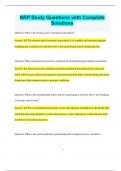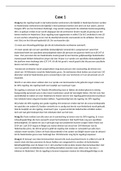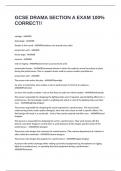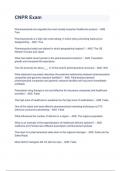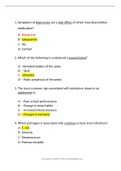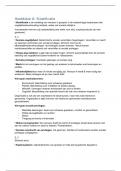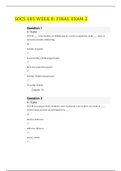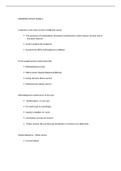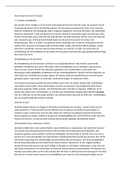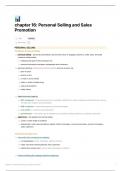Tentamen (uitwerkingen)
NRP Study Questions with Complete Solutions
- Vak
- Instelling
NRP Study Questions with Complete Solutions Question: What is the primary goal of neonatal resuscitation? Answer: The primary goal of neonatal resuscitation is to establish and maintain adequate breathing and circulation in a newborn who is not transitioning well to extrauterine life. Q...
[Meer zien]
